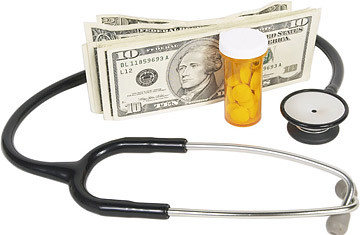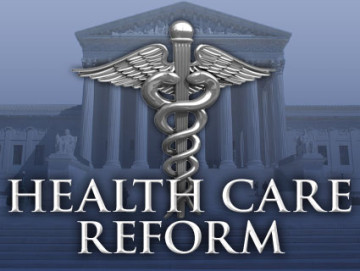Cashing In: RI Doctors Paid Millions By Pharmaceutical Companies
Monday, July 18, 2011
Dozens of Rhode Island doctors received more than $2 million in payments from eight pharmaceutical companies in 2009 and 2010 for promotional or consulting work, according to a report issued by ProPublica.org.
The companies -Eli Lilly, GlaxoSmithkline, Cephalon, AstraZeneca, Johnson & Johnson, Pfizer, ViiV and Merck- made a total of 195 payments to Ocean State providers totaling $2,212,859 over those two years. Eli Lilly, the world’s largest distributor of psychiatric medication, made more than $1.1 million in payments to Rhode Islanders.
The eight companies, which combined to account for 36 percent of all prescription drug sales in the United States in 2009, are among the only organizations that currently disclose their payments to providers on their website, although that will change under the country’s new health care law.
GET THE LATEST BREAKING NEWS HERE -- SIGN UP FOR GOLOCAL FREE DAILY EBLASTPawtucket Doctor Made Over $150k
The amount of money paid to Rhode Island doctors ranged from a high of $67,013 made by Eli Lilly to Dr. Alexis Budlong-Springer for all of 2009 to a single $100 payment made by AstraZeneca to Dr. Sudhir Bansa in 2010.
Dr. Stephen Chabot of Pawtucket had the largest haul over two years, receiving more than $150,000 in payments. Chabot made $105,421 from Eli Lilly and $48,055 from Johnson & Johnson.
The listed services provided by the doctors receiving payments from drug companies include healthcare professional education programs, speeches, consulting and professional advisory. Many doctors also had their travel expenses and business meals paid for.
Rhode Island’s $100k Club
Chabot wasn’t the Ocean State provider to cash in.
According to the report, at least five Rhode Islanders made over $100,000 over the course of the two years. They include Dr. Chabot, Dr. Budlong-Springer of East Greenwich, Dr. Robert Bessette, of Cranston, Dr. Mindy S. Rosenbloom of Barrington and Dr. James Greer of Cranston.
Attempts to reach these doctors Friday were unsuccessful and messages were not returned.
A Potential Conflict Of Interest
According the report, the eight companies analyzed are the only drug companies in the country currently publishing information about payments to doctors on their respective websites. And some aren’t doing so by their own choosing.
“Drug companies have long kept the names of their speakers—and how much they pay them—secret,” the report said. “But companies have begun posting doctors’ names and compensation on their web sites, some as the result of legal settlements with the federal government.”
While it is in no way illegal to receive payments from drug companies, questions have come up in recent years regarding the drugs some doctors are prescribing for their patients. In some cases, studies have suggested that doctors are more likely to assign drugs manufactured by companies that pay them for promotional or consulting activity.
“If your doctor has prescribed you medication made by a company he or she receives payments from, you should ask whether there are any cheaper generic alternatives,” the report suggests.
Major Drug Company Sued By Rhode Island
One of the companies that provided payments to Rhode Island doctors has had more problems than just potential conflicts of interest recently.
GlaxoSmithKline (GSK), which paid Ocean State doctors almost $570,000 over two years, has come under scrutiny in recent months for its handling of drugs at one of its subsidiary companies in Puerto Rico. GSK was forced to settle a lawsuit with 38 states, including Rhode Island, last month.
GSK and SB Pharmco agreed to pay the states over $40 million after they allegedly used substandard manufacturing processes with a number of their drugs. As part of the settlement, the Ocean State will receive $564,503 from the company.
“The public trusts that the prescription drugs they take for serious medical problems are safe and manufactured according to the highest standards,” Attorney General Peter Kilmartin said. “With the record profits the pharmaceutical companies make, it is egregious they would cut corners and put millions of people at risk.”
Drug Companies Spend Billions On Marketing
Despite not being illegal, some organizations and advocates have questioned whether it is ethical for providers to receive payments from drug companies at a time when prescription drugs continue to rise. Patients now spend more than $200 billion a year on drugs as prices for some brand-name drugs have increased by almost 50 percent over the past decade.
According to the Washington D.C. based Pew Prescription Project, drug companies continue to spend billions of dollars each year on marketing.
“The industry spends at least $30 billion dollars each year, and published studies establish that industry marketing influences prescribing, and drives the use of newer, more expensive medications that are often no better than older, more tested therapies,” Pew’s website says. “Physician-industry collaboration is necessary and beneficial, but undisclosed financial relationships create real or perceived conflicts of interest.”
New Health Care Law Makes Reporting Mandatory
But days of companies making payments to doctors without disclosing it publicly are numbered.
As of 2013, GSK, Eli Lilly and every other drug company in the country will be forced to report payments made to doctors in every state.
Under the Physician Payments Sunshine Act, which was included in President Obama’s Patient Protection and Affordable Care Act of 2009, will require all drug manufacturers to report gifts and payments made to physicians and teaching hospitals. Fines for not reporting could reach $1 million annually.
Allan Coukell, director of the Pew Prescription Project, said the new rules will increase transparency while not affecting business in any way when the bill passed last year.
“Patients deserve to know if their doctors are receiving money from drug companies,” he said. “Congress has added much needed transparency to the financial relationships between the pharmaceutical industry and physicians. The reporting requirements in the health care legislation will better protect patients and will help restore trust in our health care system.”






